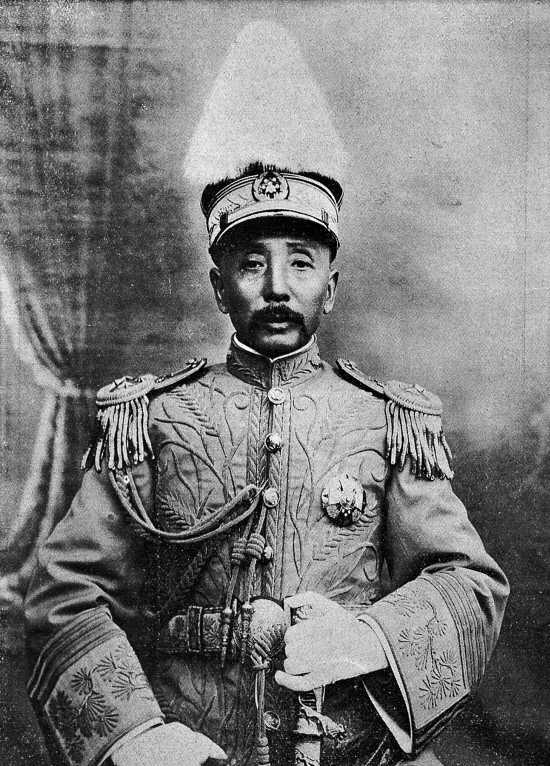
Zhang Zuolin
Author Lantai
There has long been a view that after the Xinhai Revolution, China was extremely chaotic, both politically and ideologically.
Puyi's abdication, the Second Revolution, Yuan Shikai's claim to the throne, the Patriotic War, Zhang Xun's restoration, Beiyang's marquee for the government, the Zhiwan War, the Zhifeng War, Guo Songling's anti-Feng... On the surface, this historical period is indeed as Mr. Lu Xun said, "The city head changes the banner of the great king, and you sing and I appear."
But in fact, whether it is political or ideological chaos, there is only one main purpose: salvation and enlightenment.
In the end, salvation overwhelmed enlightenment.
This is not nonsense.
Professor Zhou Xirui pointed out in his famous book "Reform and Revolution": "The Xinhai Revolution has two faces: one is the face of progress, democratic republicanism; In a way, it hides another 'feudal' face. Both target centralized dictatorships. ”
Feudalism in the traditional sense of the East refers to the feudal family under centralized power, in short, to regard the state as the private property of a certain family, but the means by which the family manages the country is centralized power.
Feudalism in the Western sense actually refers to local autonomy, and Western feudal kingdoms are usually a collection of local lords, and the king is only the leader of these local lords, not the master.
The "feudalism" that Professor Zhou Xirui refers to is actually the "local autonomy" that prevailed after the Xinhai Revolution.
In terms of spreading out, the Xinhai Revolution was both a republican revolution against the feudal family, as well as a revolution of local autonomy against centralized power, and even the latter had a more far-reaching impact on modern China.
Wang Yongjiang
After the outbreak of the Xinhai Revolution, the provinces declared independence one after another, Jiangxi Province, which was controlled by the Alliance after the Second Revolution, declared independence in Jiangxi Province, which was controlled by the Alliance, Yuan Shikai declared independence in the southwestern provinces headed by Cai Yi after the emperor, and Zhang Zuolin declared independence against the three eastern provinces after the disastrous defeat in the Zhifeng War, all of which meant that for a long time after the Xinhai Revolution, China's political "decentralization" was " , and the relationship between the central and local governments was no longer a relationship between superior and subordinate in the era of feudal families and the world, but a relationship of equal level, and even whether the center had authority and legitimacy. The criterion for judging is no longer the center, but has shifted to the localities, depending on whether the provinces recognize the supreme authority of the center.
For example, Zhang Zuolin, who lost the first direct war, declared the "independence" of the three eastern provinces, which means that although the Beiyang government headed by Cao Kun has been recognized by Western countries, it has no legitimacy and authority in the three eastern provinces, and only Zhang Zuolin recognizes the legitimacy and authority of the Beiyang government on behalf of the three eastern provinces, and the Beiyang government has regained legitimacy and authority in the three eastern provinces.
Of course, after the collapse of ancient dynasties, there will be a period of chaos, and at first glance, it is not unusual for the warlords in the provinces to divide after the Xinhai Revolution, but if we analyze it in depth, we can find that after the Xinhai Revolution, local autonomy is not only an excuse for warlords to divide, but also has a strong public opinion base.
For example, Zhang Zuolin's "money bag", a warlord financial expert, and Wang Yongjiang, director of the Finance Department of Fengtian Province (present-day Liaoning Province), resigned in 1926 as director of the Finance Department of Fengtian Province because Wang Yongjiang did not want to see Zhang Zuolin squander the savings of the ordinary people of the three eastern provinces to "dominate the Central Plains."
Guo Songling
Wang Yongjiang has said many times that the three eastern provinces are rich and should be built behind closed doors, rather than blindly thinking of "reunification by force."
Why should we go to the civil war? If we concentrate on practicing internal affairs, governing the northeast well, and becoming rich and strong, we don't have to fight, they naturally come to vote for us, and the territory can not be expanded, so why rush for a while?
When Guo Songling led the army to oppose Fengfeng, the slogan he shouted was also dissatisfaction with Zhang Zuolin's "reunification by force," claiming that he would "carry out construction behind closed doors" in the future.
It can be seen that another hidden main line of the Xinhai Revolution is "local autonomy" as the center, opposing the central centralization of power.
END